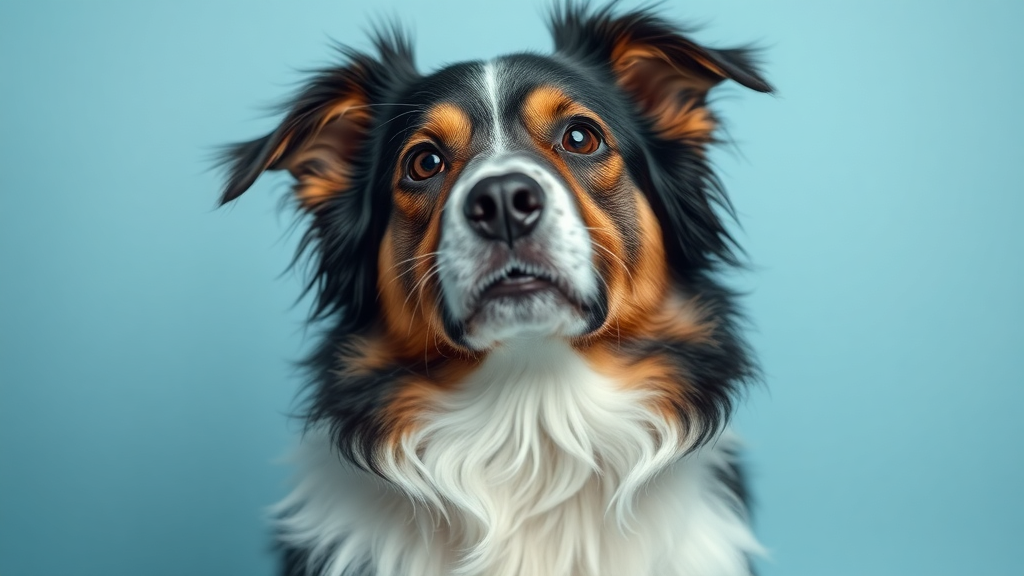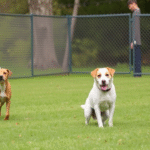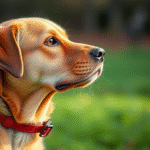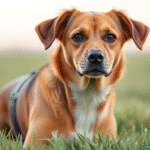Exploring Traits: What Defines the World’s Nicest Dog?
When we ask, “What is the world’s nicest dog?” we often think of traits that define a kind and friendly canine companion. Each breed showcases specific characteristics, but some dogs seem to shine brighter in the realm of affection, loyalty, and gentleness. Understanding these traits can guide potential dog owners in finding a pet that fits their lifestyle while also bringing joy to their lives.
Key Traits of the World’s Nicest Dog
Friendliness
One of the most important traits of a loving dog is their friendliness. Friendly dogs approach people and other pets with open paws, eager to interact. They greet family members with wagging tails and a joyful demeanor, making them excellent companions. Breeds like Golden Retrievers and Labrador Retrievers are often recognized for their friendly nature.
Gentleness
The world’s nicest dogs exhibit a gentle spirit. They are calm and patient, especially around children. Gentle dogs do not overreact or act aggressively, showing a kind understanding of their surroundings. Breeds such as the Cavalier King Charles Spaniel and the Bichon Frise excel in this trait.
Loyalty
Loyalty is another defining trait of the nicest dogs. These dogs form strong bonds with their owners, always staying by their side. This unwavering devotion is often seen in breeds such as the German Shepherd and the Beagle, showcasing their protective instincts while nurturing a loving relationship.
Trainability
Dogs that are easy to train often make the most enjoyable companions. Their eagerness to learn new commands and tricks reflects their intelligence and willingness to please. Breeds like the Poodle and the Shetland Sheepdog are known for their high trainability, which makes them great pets for all kinds of families.
Affectionate Nature
A dog that shows affection can light up your days. Affectionate dogs love cuddling, playing, and simply being around their humans. They express love through licks, nuzzles, and wagging tails. Breeds like the French Bulldog and the Boxer are known for their playful and affectionate behaviors.
Popular Breeds Known as the Nicest Dogs
The following table highlights some of the popular breeds often recognized as the world’s nicest dogs. Each breed is selected for their unique combination of traits that make them exceptional companions.
| Breed | Key Traits |
|---|---|
| Golden Retriever | Friendly, loyal, gentle |
| Cavalier King Charles Spaniel | Gentle, affectionate, friendly |
| Labrador Retriever | Affectionate, loyal, intelligent |
| Poodle | Intelligent, trainable, playful |
| Bichon Frise | Gentle, friendly, affectionate |
Factors Influencing Niceness
The dog’s environment plays a significant role in shaping their behavior. Dogs raised in loving homes, with plenty of socialization, often develop into well-rounded companions. Conversely, a lack of social exposure can lead to anxious or aggressive behavior. Providing training, socialization with other pets and people, and a loving atmosphere are crucial for developing a dog’s nice traits.
The Owner’s Role
Your relationship with your dog greatly influences their behavior. Training, socialization, and consistent affection contribute to how nicely a dog interacts with others. It is essential to invest time and effort into building a strong bond with your furry friend. Regular walks, playtime, and positive reinforcement training help to foster respect and loyalty.
In the quest for the world’s nicest dog, consider not only the breed but also the caring environment that shapes their character. With a loving home, any dog can surprise you with their endless capacity for love and friendship.
To learn more about various dog breeds and their characteristics, you can visit the American Kennel Club.
For tips on training and caring for your dog, check out PetSmart.
The Role of Temperament in Dog Breeds
When selecting a dog, understanding the role of temperament in dog breeds is crucial. Temperament refers to the dog’s natural behavioral traits, which can vary significantly between different breeds. Factors such as energy levels, personality, and trainability all play important roles in how well a dog fits into your lifestyle.
Here are some key points regarding the temperament of various dog breeds:
- Energy Levels: Different breeds have varying energy demands. For example, working breeds like Border Collies require a lot of exercise and mental stimulation. In contrast, smaller breeds like Bulldogs tend to have a more relaxed demeanor.
- Socialisation: Some breeds, like Golden Retrievers, are naturally friendly and tend to get along with children and other pets. Other breeds may be more reserved and require proper socialization to interact well.
- Trainability: Breeds such as Poodles and German Shepherds often excel in obedience training, while stubborn breeds like Afghan Hounds may not respond as well.
- Protectiveness: Certain breeds, especially guard dogs like Rottweilers and Doberman Pinschers, have strong protective instincts. Understanding these traits is essential, especially in family settings.
Understanding temperament can help you choose the right dog for your family. For instance, if you lead a busy lifestyle and prefer a calmer companion, a breed like the Bichon Frise may suit you better than a high-energy breed.
Here are some popular breeds and their temperamental traits:
| Breed | Temperament | Ideal Owners |
|---|---|---|
| Labrador Retriever | Friendly, Outgoing | Families, Active Individuals |
| Shih Tzu | Affectionate, Gentle | Apartment Dwellers, Seniors |
| German Shepherd | Intelligent, Loyal | Active Owners, Service Roles |
| Cavalier King Charles Spaniel | Friendly, Playful | Families, Companion Seekers |
| Chihuahua | Alert, Sassy | Urban Dwellers, Singles |
The temperament can change based on their upbringing and environment. For example, a well-socialized dog will usually behave better around strangers. Regular training and positive reinforcement help shape a dog’s behavior, enhancing their natural temperament.
Certain organizations provide valuable resources concerning the temperament of dog breeds. The American Kennel Club (AKC) offers detailed information, including breed standards and recommended training practices. Similarly, the Bark magazine emphasizes the importance of understanding dog behavior and temperament in various settings.
Be aware that each dog is an individual. Even within a breed known for a specific temperament, you might find variations. Genetics play a crucial role, but so does the dog’s environment and upbringing. Therefore, potential owners should spend time with a dog before committing to ensure compatibility based on the dog’s behavior.
If you are considering adopting a dog, visiting shelters can provide insights into a dog’s temperament. Many shelters have staff that can help match you with a dog suited to your lifestyle. They often understand each dog’s history and can guide you in making the best choice.
The role of temperament in dog breeds is vital for both owners and potential adopters. Understanding the natural traits of different breeds helps ensure a harmonious relationship between the dog and its family. By considering factors like energy levels, socialization, and training needs, you can find a lovable companion that fits perfectly into your home.
For more detailed insights into various dog breeds and their temperaments, check out Dog Breed Info, where you can find extensive profiles and expert advice tailored to your needs.
How Training Influences a Dog’s Behavior and Kindness
Training plays a crucial role in shaping a dog’s behavior and fostering kindness. When owners invest time in training, they create a positive environment that encourages good habits and friendly interactions. This not only benefits the dog but also enhances the relationship between the owner and their furry friend.
Dogs are social animals, and their behavior is often a reflection of their training experiences. Positive reinforcement is one of the most effective training methods and involves rewarding a dog for desired behaviors. This approach encourages dogs to repeat those behaviors, leading to a more well-behaved and kind pet.
- Basic Commands: Teaching your dog basic commands such as sit, stay, and come sets the foundation for good behavior. These commands aid in communication and help manage your dog’s actions in various situations.
- Socialization: Exposing dogs to different environments, people, and other animals is vital. Proper socialization reduces anxiety and fear, making dogs more comfortable and kind in diverse situations.
- Positive Reinforcement: Using treats, praise, or playtime as rewards builds a dog’s confidence. When dogs associate good behavior with positive outcomes, they are more likely to behave kindly.
- Consistency: Consistent training helps dogs understand what is expected of them. This clarity minimizes confusion and promotes good behavior over time.
Moreover, trained dogs are typically calmer and less anxious. They are better equipped to cope with new situations without resorting to aggressive or fearful behaviors. This change leads to more friendly interactions with both humans and other animals. The link between training and a dog’s emotional well-being is undeniable, as trained dogs often feel more secure in their surroundings.
Training influences a dog’s kindness in several ways:
| Training Method | Behavioral Impact | Kindness Level |
|---|---|---|
| Positive Reinforcement | Encourages good behavior | High |
| Socialization | Reduces fear and anxiety | High |
| Basic Commands | Aids in communication | Moderate |
| Consistency in Training | Builds clarity and trust | High |
In addition to kindness, training has a profound influence on a dog’s overall behavior. Dogs that receive regular training tend to demonstrate:
- Improved Focus: Trained dogs can focus better on tasks, whether it’s obedience or engaging in play with their owners.
- Better Impulse Control: Training teaches dogs to think before acting, reducing behaviors like jumping or barking excessively.
- Enhanced Bonding: Training provides a shared activity that strengthens the emotional connection between the dog and the owner.
- Increased Confidence: As dogs learn and succeed in their training, they gain confidence, which naturally translates to kindness.
Another essential aspect of dog training is the role it plays in preventing behavior problems. Dogs that are properly trained are less likely to develop issues such as aggression or separation anxiety. Understanding key training strategies can help establish a harmonious environment for your pet:
- Start training young. Puppies are more adaptable and learn faster.
- Make training fun! play and variety keeps dogs engaged.
- Utilize professional help if needed. Trainers can provide valuable insights and techniques.
Dog owners can find more information on effective training techniques through reputable resources. Consider checking out the American Kennel Club for expert advice on training and behavior modification.
Training significantly influences a dog’s behavior and promotes kindness. By investing time in training and socializing your dog, you set the stage for a loving, well-mannered companion. This not only enhances the dog’s life but also enriches the owner-pet relationship, creating a happier and healthier environment for everyone.
Popular Breeds Known for Their Gentle Nature
When it comes to finding a loving and gentle companion, certain dog breeds stand out due to their calm demeanor and friendly nature. If you’re on the hunt for a furry friend known for being kindhearted, here’s a look at some popular breeds that are celebrated for their gentle temperament.
Golden Retriever
Golden Retrievers are among the most beloved breeds worldwide, thanks to their friendly and easy-going personality. They are loyal, intelligent, and eager to please, making them ideal family dogs. Their gentle nature makes them excellent with children and other pets. Learn more about Golden Retrievers here.
Cavalier King Charles Spaniel
This small breed is the epitome of affection. Cavaliers are known for their gentle disposition, making them great lap dogs. Their playful yet calm personality allows them to easily adapt to various living situations, whether you live in a bustling city or a quiet country home. They thrive on companionship and love to be around people. For more details, check out this link.
Newfoundland
Newfoundlands are often referred to as “gentle giants.” Despite their large size, they have a calm and loving nature. Known for their swimming abilities, they are incredibly patient and protective, particularly around children. This breed is known to be very friendly and can be a great addition to any family. For additional insights, visit this resource.
Bernese Mountain Dog
With their striking tri-color coats, Bernese Mountain Dogs are not only handsome but also known for their gentle and easy-going demeanor. They are extremely loyal and form strong bonds with their families. Their calm nature and playful spirit make them great companions for children and adults alike. Discover more at this page.
Bichon Frise
The Bichon Frise is a small, cheerful breed known for its fluffy white coat and friendly nature. They are playful, affectionate, and incredibly gentle. Bichons generally get along well with other pets and love being the center of attention. They thrive on human interaction and make great family dogs. For more information, check here.
Pug
Pugs may be small, but their larger-than-life personalities are hard to ignore. They are friendly, sociable, and all around loving dogs. Pugs are known to be great companions due to their playful spirit and gentle nature. They love to be around people and are especially good with children. Read more about Pugs [here](https://www.akc.org/dog-breeds/pug/).
Irish Setter
Irish Setters are known for their beautiful, flowing red coats and their joyous, gentle personalities. They are friendly, energetic, and particularly good with families. Their love for playtime and interaction makes them wonderful companions. They are also known to be friendly to other dogs and pets. For additional details, see this site.
Shih Tzu
Shih Tzus are small, affectionate dogs that thrive on human companionship. They are known for being friendly and having a gentle nature. Shih Tzus do well in families and are particularly good with children. Their laid-back approach to life makes them great cuddly companions. For more information, visit this link.
| Breed | Temperament | Size |
|---|---|---|
| Golden Retriever | Friendly, Loyal | Large |
| Cavalier King Charles Spaniel | Affectionate, Adaptable | Small |
| Newfoundland | Calm, Protective | Large |
| Bernese Mountain Dog | Loyal, Social | Large |
| Bichon Frise | Playful, Affectionate | Small |
| Pug | Sociable, Loving | Small |
| Irish Setter | Joyful, Friendly | Large |
| Shih Tzu | Gentle, Laid-back | Small |
Choosing the right dog for your family is an important decision. Focus on breeds known for their gentle natures, as they often make the best companions. Whether it’s a playful Golden Retriever or a calm Bernese Mountain Dog, you have plenty of wonderful options to consider!
The Influence of Socialization on Dog Friendliness
Socialization plays a crucial role in shaping a dog’s behavior and friendliness towards humans and other animals. As a dog owner, understanding how socialization influences your furry friend’s temperament can enhance your training efforts and create a happier environment for both of you.
The process of socialization involves exposing a dog to a variety of experiences, people, and environments. Early socialization is vital; it sets the foundation for how a dog interacts with the world throughout its life. When puppies are introduced to different situations between the ages of 3 and 14 weeks, they are more likely to grow up to be friendly and well-adjusted adults.
Here are several key aspects of how socialization influences dog friendliness:
- Exposure to Different Environments: Dogs that experience various settings, such as parks, streets, and homes, learn to adapt to change and feel comfortable in new situations.
- Interactions with Other Dogs: Socializing with other dogs teaches puppies proper behavior, such as bite inhibition and appropriate play styles. This helps them develop social skills that are crucial for adult interactions.
- Meeting People: Friendly interactions with a diverse range of people, including children, adults, and seniors, can help your dog become more trusting and less fearful of humans.
- Sound and Sensory Exposure: Introducing dogs to various sounds, such as traffic, fireworks, and household appliances, desensitizes them to potential fear triggers.
It’s important to note that the nature of these socialization experiences significantly affects their outcomes. Positive encounters create lasting impressions, whereas negative experiences can lead to fear or aggression. Therefore, it’s crucial to ensure that socialization opportunities are enjoyable for the dog.
Timing is also essential. The optimal period for socializing puppies is during their critical socialization period. However, older dogs can still benefit from socialization, although the process may require more patience and gradual exposure.
Different breeds may have varying traits regarding temperament and friendliness. For instance, some breeds, like Golden Retrievers and Labradors, are known for their friendly natures and adaptability. On the other hand, certain breeds may have a more reserved disposition and may require more proactive efforts during socialization.
| Dog Breed | Typical Temperament | Socialization Needs |
|---|---|---|
| Golden Retriever | Friendly, Intelligent | Low to Moderate |
| Shiba Inu | Alert, Independent | High |
| Poodle | Intelligent, Active | Moderate to High |
| Chihuahua | Bold, Loyal | High |
One of the most effective ways to socialize your dog is by enrolling them in puppy classes or socialization groups. These classes not only provide structured socialization opportunities but also teach essential commands and reinforce proper behavior.
Another excellent method for socialization is organized playdates with other friendly dogs. This allows them to practice their social skills in a safe environment. Always supervise these playdates to ensure that the interactions remain positive and do not turn aggressive.
As a responsible dog owner, it’s vital to be proactive in your dog’s socialization journey. Start gradually and provide positive reinforcement during each experience. Use treats, praise, and gentle encouragement to help your dog associate new experiences with pleasure. If unsure about how to proceed, consult professionals or reliable resources such as the American Kennel Club for guidance.
Socialization is a significant factor influencing a dog’s friendliness. The more varied and positive experiences a dog has during its formative weeks, the more adaptable and friendly they will likely become. Implementing effective socialization strategies will not only contribute to a more pleasant experience for everyone but will also enrich your dog’s life, making them the well-rounded companion you desire.
Heartwarming Stories of Dogs with Exceptional Kindness
Dogs have an incredible ability to touch our hearts with their kindness and compassion. Across the world, there are countless stories of dogs displaying exceptional kindness, often in ways that remind us of the beauty of the human-animal bond. These stories not only show the loving nature of dogs but also how they can impact our lives for the better.
One widely shared story involves a golden retriever named Duke, who became a local hero after jumping into a river to save a 5-year-old boy who had accidentally fallen in. With steady determination, Duke swam against the current and managed to bring the child back to safety, showcasing the bravery that this breed is known for.
Another heartwarming tale is that of a Labrador named Max. This loyal companion sensed when his owner was about to have a seizure and stayed close by, offering support and comfort until help arrived. This remarkable intuitive ability is often seen in dogs, proving that they can be both friends and protectors.
Moreover, dogs can form deep, compassionate connections with people in need. A touching story from a retirement home involved an elderly beagle named Winston. Every week, Winston would visit residents, bringing joy and comfort to those who felt lonely. His gentle demeanor and playful spirit helped lift their spirits and reminded them of the warmth and unconditional love that dogs can provide.
Here’s a glance at some of the remarkable qualities that make these dogs so exceptional:
| Dog Breed | Known For |
|---|---|
| Golden Retriever | Being friendly, loyal, and protective |
| Labrador Retriever | Outstanding intelligence and intuitive nature |
| Beagle | Affectionate nature and great companionship |
| German Shepherd | Bravery and loyalty in protection roles |
Another incredible story worth sharing involves a dachshund named Milo. This courageous little dog jumped in front of his young owner when an aggressive dog approached. Milo sustained injuries while protecting the child, proving that valiant acts of kindness can come in all shapes and sizes.
We also cannot overlook therapy dogs, who provide critical emotional support to individuals undergoing tough times. For instance, Therapy Dog Partners demonstrates how specific dog breeds are trained to help people with emotional struggles, enhancing their quality of life through mere companionship and love. Their ability to sense human emotions and respond accordingly is heartwarming and inspiring.
Emotional support dogs are important too. These pets offer love and stability to owners dealing with anxiety, PTSD, and depression. There are multiple examples of dogs like Bella, who provided unwavering love to her owner during her darkest days, helping her regain the strength to move forward.
Whether it is a story of bravery, companionship, or unconditional love, dogs continually remind us of the importance of kindness. The bond between dogs and humans can transcend language and culture, bringing comfort and joy into our lives. Their stories ignite a sense of hope and highlight the beauty inherent in the canine spirit.
For more touching stories and to understand the extensive role dogs play in healing, you can explore websites like Sirius Dog Training or The Humane Society of the United States.
How to Choose a Dog That Matches Your Family’s Lifestyle
Choosing a dog that fits seamlessly into your family’s lifestyle is an exciting yet significant decision. With various breeds offering different energy levels, temperaments, and care requirements, it’s crucial to consider how a dog will mesh with your daily routine and family dynamics.
Assess Your Family’s Activity Level
One of the first steps in the selection process is evaluating your family’s activity level. Some dogs thrive on constant exercise, while others prefer a more relaxed lifestyle. Here are a few factors to consider:
- Active Families: If your family enjoys outdoor activities like hiking, running, or cycling, look for breeds that enjoy exercise, such as Retrievers, Border Collies, or Australian Shepherds.
- Moderately Active Families: Breeds like Bulldogs or Beagles require moderate exercise and are great companions for regular walks without needing extensive workout sessions.
- Less Active Families: For families that enjoy a calm lifestyle, breeds like the Cavalier King Charles Spaniel or Basset Hound are ideal as they are content with short walks and indoor playtime.
Consider Your Living Environment
Your living space significantly influences your dog choice. The size of your home and the availability of outdoor spaces can narrow down your options:
- Apartments: Smaller breeds or those with lower exercise needs, like Chihuahuas, Shih Tzus, or French Bulldogs, can thrive in apartments. They typically need less space and are excellent for indoor living.
- Houses with Yards: Larger breeds like Golden Retrievers or Labrador Retrievers benefit from having a yard, providing them with ample space to run and play.
Family Members’ Age and Allergies
Another crucial factor is the age of your family members and any allergies that might be present:
- Children: If you have young kids, look for friendly, tolerant breeds that typically get along well with children, such as Beagles, Boxers, or Poodles.
- Allergies: If someone in your family has allergies, consider hypoallergenic breeds such as Poodles, Bichon Frises, or Schnauzers which are less likely to trigger allergic reactions.
Training and Maintenance
All dogs require some form of training and care, but certain breeds may need more attention than others. Here’s what to keep in mind:
- Intelligent Breeds: Dogs that are quick to learn commands, like Labrador Retrievers and German Shepherds, may be easier to train.
- Grooming Needs: Some breeds need regular grooming. Long-haired breeds like Yorkshire Terriers require frequent brushing, while short-haired breeds like Beagles may need less upkeep.
Long-term Commitment
Owning a dog is a long-term commitment that can last 10-15 years or more. Ensure you are ready for the responsibility:
- Financial Considerations: Consider the cost of food, grooming, veterinary care, and potential training classes.
- Time Commitment: Make sure that your family can dedicate time for walks, playtime, and training.
To find a dog breed that fits your family the best, consider visiting reputable websites such as American Kennel Club or Petfinder to learn more about different breed characteristics and needs.
Meet Potential Dogs
Visiting a local shelter or rescue organization can also provide insight into various breeds. Meeting dogs in person will allow you to observe their energy levels, temperament, and how they interact with your family. It can be an eye-opening experience that helps in making the final choice.
Remember that every dog, like every family, is unique. By carefully considering your options and understanding what different breeds need, you can find the perfect canine companion that will bring joy and love into your home for years to come.
Key Takeaway:
When seeking the title of "the world’s nicest dog," it’s essential to consider various aspects that contribute to a dog’s temperament and behavior. Each dog has unique qualities, but specific traits consistently shine through among notable breeds. Understanding what defines the world’s nicest dog starts with examining fundamental attributes such as gentle disposition, friendliness, patience, and an eagerness to please. These traits can vary significantly among different dog breeds.
Temperament plays a crucial role in identifying dog breeds that are typically recognized for their kind-hearted nature. Breeds with a stable and friendly temperament are often considered the most affectionate companions. Taking the time to research various dog breeds can reveal which ones are naturally inclined to display kindness and gentleness towards humans and other pets.
Training also heavily influences a dog’s behavior. Dogs that receive proper training are generally more well-behaved and sociable. Teaching commands and encouraging good behavior fosters an environment where kindness thrives. Positive reinforcement is vital here. Utilizing love and treats as rewards can help instill a warm-hearted demeanor in your furry friend.
Popular breeds like Golden Retrievers, Labrador Retrievers, and Beagles are often seen as some of the nicest dogs available, thanks to their friendly and approachable nature. However, it’s important to remember that individual personalities can vary, even within a breed.
Socialization plays a pivotal role in developing a dog’s friendliness. Dogs that interact with many people and environments tend to be more adjusted and less fearful. This exposure helps them become more comfortable and kind to others, connecting them with people in more meaningful ways.
Heartwarming stories of dogs that go above and beyond in their acts of kindness reinforce the idea that each dog has the potential to be the world’s nicest. From therapy dogs comforting hospital patients to service dogs assisting individuals with disabilities, these tales inspire dog lovers everywhere.
Ultimately, choosing a dog that suits your family’s lifestyle and needs is essential. Consider your living situation, activity level, and how much time you can dedicate to training and socialization. Their temperamental compatibility with your family can make all the difference in embracing a kind and gentle dog. When you find the right match, you may just discover your family’s new best friend.
Conclusion
Identifying the world’s nicest dog encompasses a rich tapestry of traits, temperament, and training. It’s a blend that forms a unique personality, radiating kindness and friendliness. Breeds such as the Golden Retriever, Labrador Retriever, and Cavalier King Charles Spaniel often take center stage in discussions about gentle nature. Their inherent ligatures of temperament are magnified through proper training, which greatly influences how a dog behaves towards people and other animals.
Socialization plays a pivotal role in a dog’s friendliness. Early exposure to various environments and experiences can shape a dog’s sociable disposition, ensuring they grow up to be not just affectionate, but also well-adjusted companions. Heartwarming stories of dogs that have shown remarkable kindness reinforce the idea that it’s not solely about breed but also about the environment and care they receive.
When considering which dog might be the “nicest,” it’s essential to assess your family’s lifestyle. Not all gentle breeds fit every household; understanding your daily routine and environment can guide you towards choosing the right canine companion. A dog that seamlessly blends into your family’s dynamics brings joy and mutual respect, creating unbreakable bonds.
Ultimately, the nicest dog is often one that reflects the love and patience they receive from you. By appreciating the combination of traits, effective training, and thoughtful socialization, you can welcome a furry friend who not only defines kindness but enriches your life with endless love and loyalty.







Leave a Reply